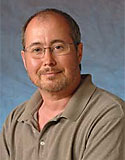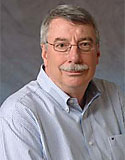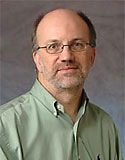Research Consortium
- Ben Barres, M.D., Ph.D., Stanford University
- Ben Emery, Ph.D., Oregon Health and Science University
- Robert H. Miller, Ph.D., Case Western Reserve University
- Stephen D. Miller, Ph.D., Northwestern University
- Brian Popko, Ph.D., University of Chicago
- Mikael Simons, M.D., University of Göttingen
- Christine Stadelmann-Nessler, M.D., University of Göttingen Medical Center
Ben Barres, M.D., Ph.D.


Dr. Ben Barres is Chair of Stanford University School of Medicine’s Neurobiology Department and Professor of Neurobiology, Developmental Biology and Neurology. Dr. Barres is a member of the National Academy of Sciences.
Dr. Barres's laboratory brings expertise in the development and function of glial cells in the mammalian central nervous system (CNS). They have found evidence of several novel glial signals that induce the onset of myelination, the clustering of axonal sodium channels, the survival and growth of retinal ganglion cells, and the formation of synapses.
Their work for Myelin Repair Foundation compliments Dr. Robert Miller's work on characterizing the processes related to myelination and identifying relevant glial-derived signaling molecules. To understand the interactions between axons and glial cells Dr. Barres's laboratory has developed methods to highly purify and culture neurons as well as oligodendrocytes and astrocytes (the glial cell types they interact with). The laboratory has developed a variety of novel methods to generate purified cell cultures that allow direct study of molecular interactions between the cell types and has considerable expertise in identifying and purifying these molecules.
All participating laboratories will rely on Dr. Barres's laboratory for its unique expertise in evaluating the action of target molecules using these novel cell purification and culture systems.
- Back to top -
Ben Emery, Ph.D.


Dr. Ben Emery is Assistant Professor at the Jungers Center for Neurosciences Research, Oregon Health and Science University. He obtained his B.Sci. and Ph.D. at the University of Melbourne before joining Dr. Ben Barres at Stanford University in 2005.
While at Stanford University Dr. Emery was involved in developing methods to purify glial cells from mice and use these to identify novel genes involved in myelination and remyelination. He also set up assays for assessing the function of these genes in culture, collaborating with Dr. Popko’s group in assessing some of their knock-out mice.
Dr. Emery’s laboratory at OHSU continues to focus on the identification of genes and neuronal signals that drive the myelination process. A particular focus includes the Myelin Regulatory Factor (Myrf) gene, which is critical for both developmental myelination and remyelination. His laboratory is currently in collaboration with the MRF Translational Medicine Platform and Dr. Barres’ laboratory to test the role of the Myrf gene and other candidate genes in myelin repair.
- Back to top -
Robert H. Miller, Ph.D.

Dr. Robert Miller is the Vice President for Research & Technology Management, the Director of the Center for Translational Neuroscience and the Allen C. Holmes Professor of Neurological Diseases at Case Western Reserve University in Cleveland, Ohio. Dr. Miller also holds appointments at the Cancer Center and Department of Neurosurgery, University Hospitals of Cleveland. He obtained both his B.Sc. and Ph.D. from University College in London, England and joined the faculty at Case Western Reserve University in 1987.
Dr. Miller's laboratory brings expertise in defining the cellular and molecular factors that regulate glial cell determination in the vertebrate CNS and examining how proliferation and differentiation are controlled in the oligodendrocyte lineage in order to achieve the appropriate number of myelinating oligodendrocytes in the CNS. They also evaluate how glial cellular diversity is generated and what regulates the final glial composition of different regions of the CNS.
Dr. Miller's work complements Dr. Barres's for completing our understanding of the normal signaling and development of oligodendrocyte precursors into mature, myelinating oligodendrocytes. In addition, Dr. Miller's lab brings unique expertise in identifying, evaluating and validating Myelin Repair Foundation therapeutic targets in early stages of development and commitment, using both normal and diseased animal models and human tissue culture.
Dr. Miller's lab works closely with Dr. Barres's lab on identifying and validating developmental signaling pathways and the resulting therapeutic targets. His lab will also evaluate potential therapeutic targets identified by the other labs by their unique tissue culture capabilities.
- Back to top -
Stephen D. Miller, Ph.D.


Dr. Stephen Miller is the Judy Gugenheim Research Professor of Biomedical Sciences, Professor of Microbiology-Immunology and Director of the Interdepartmental Immunobiology Center at Northwestern University.
Dr. Miller's laboratory investigates the immunological, cellular and molecular mechanisms of T cell-mediated autoimmune responses employing two mouse models of multiple sclerosis - Theiler's virus-induced model of multiple sclerosis and Relapsing Experimental Autoimmune Encephalomyelitis (R-EAE). The laboratory examines the mechanisms whereby self-tissue destruction results in activation and recruitment of autoreactive T/B cells specific for endogenous self antigens and molecular mimicry, the process that leads to induction and/or progression of autoimmunity.
Dr. Miller's expertise in the pathogenesis of autoimmunological disorders along with his specific expertise on the role of leukocytes in the regulation of myelination are critical to the Myelin Repair Foundation achieving a comprehensive understanding of the endogenous molecular signals that mediate pathogenesis and prevent remyelination in multiple sclerosis.
Signaling mechanisms and molecules identified by Dr. Miller's lab that stimulate pathogenesis of myelin, will be validated in cell culture by Dr. Barres and Dr. Robert. Miller, and in genetically-modified mice by Dr. Popko.
Dr. Miller's lab will perform similar evaluation services for targets identified by each of the other labs, in animal models developed by his lab. In addition, he will collaborate with Dr. Popko the development of new animal models that more closely mimic human multiple sclerosis, as necessary to validate Myelin Repair Foundation therapeutic targets.
- Back to top -
Brian Popko, Ph.D.

Dr. Brian Popko is the Jack Miller Professor of Neurological Diseases, Director of the Jack Miller Center for Peripheral Neuropathy and Associate Chair for Research in the Department of Neurology at the University of Chicago.
With a long-standing interest in disorders of the nervous system, Dr. Popko's work has centered on glial cells. Of particular interest to Dr. Popko's group are diseases like multiple sclerosis that disrupt the normal function of glial cells and the myelin sheath. Dr. Popko takes a molecular genetic approach to better understand these disorders using state-of-the-art techniques that allow for the manipulation of the mouse genome.
Dr. Popko's expertise in genetic manipulation to produce animal models that either do not produce a specific protein (knock-out), or that are induced to produce a non-native protein (transgenic), are essential in the validation of the pathogenic effects of therapeutic targets identified by all other Myelin Repair Foundation researchers.
In addition to testing the effects of target molecules identified by Myelin Repair Foundation researchers in these animal models, Dr. Popko will be working closely with Dr. Miller to develop new animal models that not only more closely mimic the pathogenesis of human multiple sclerosis, but also allow quantitative measurement of myelin formation. This is a critical step in proving the efficacy of myelin repair treatments.
- Back to top -
Mikael Simons, M.D.

Mikael Simons is a Professor for Molecular Neurobiology at the Department of Neurology at the University of Göttingen in Germany. He is board-certified clinical neurologist with specialized expertise in neuroimmunological diseases including multiple sclerosis. He is heading a research team at the Max-Planck Institute of Experimental Medicine in Göttingen.
Dr. Simons’ lab is mainly working on the molecular mechanisms of myelin biogenesis and neuron-glia communication in the central nervous system. His lab uses biochemical and genetic approaches both in primary cell culture and in mouse models. Furthermore, he combines various imaging techniques (electron microscopic, time-lapse live-imaging techniques etc) in an integrated approach to resolve membrane architecture at high-resolution. The approach is interdisciplinary, aiming at integrating cell biology into neuroscience of normal brain development and demyelinating diseases.
The aim for his project with the Myelin Repair Foundation is to extend these studies into demyelinating disease models of the mouse and to study the mechanisms of myelin repair. In addition, he addresses the mechanisms of myelin disassembly and clearance in demyelinating diseases. The overall goal will be to identify new druggable targets in white matter tissue repair.
- Back to top -
Christine Stadelmann-Nessler, M.D.

Dr. Christine Stadelmann is a Professor of Neuropathology at the University of Göttingen Medical Center in Germany. Her research is centered on the pathogenetic mechanisms involved in multiple sclerosis (MS) and other demyelinating diseases. In addition to her studies on MS immunopathology, her group focuses on the development of novel models suitable for research into mechanisms of tissue damage and repair of inflammatory demyelinated lesions. Furthermore, she has a long-standing interest in neuronal and axonal damage in MS, especially with regard to MS disease progression.
Dr. Stadelmann’s research is primarily based on the study of the pathology of human demyelinating diseases, particularly lesion stage-dependent phenomena. Here, a comparative pathological appraisal of the different demyelinating diseases may substantially advance our understanding of the pathogenesis of MS. Moreover, the failure of remyelination in MS requires a thorough analysis of physiological and pathological situations in which remyelination is effective.
Dr. Stadelmann’s work on human tissue is complementary to Dr. Ben Barres’, Dr. Bob Miller’s and Dr. Brian Popko’s work on the molecular mechanisms of oligodendrocyte and myelin damage in experimental models. Strong ties exist with the laboratory of Dr. Simons concerning mechanisms of myelin damage. She is cooperating with Dr. Steve Miller’s lab with regard to myelin and oligodendrocyte pathology in immunological models of MS.
Dr. Stadelmann’s expertise in a variety of experimental models of CNS inflammation and demyelination as well as human disease pathology will aid MRF researchers to select appropriate molecular targets and experimental models to advance myelin repair in MS.
- Back to top -
Contract Research Organizations
To advance the most promising drug targets toward commercial development, the Myelin Repair Foundation partners with contract research organizations (CROs) for critical validation and drug discovery studies. The following CROs have or are currently working with the Myelin Repair Foundation on these studies.
- BaySide Chem
- Blue Dolphin Lead Discovery LLC
- Bolder Biopath, Inc.
- Charles River Laboratories, Pathology Associates, Inc.
- Collaborative Drug Discovery
- Dalton Pharma Services
- Datacloud SPLTrak
- Evotec
- Mayo Clinic Chemical Synthesis Core Facility
- Neuroscience Associates
- Pharmoptima
- PPD
- Tox Path Specialists, LLC
- Back to top -
Focus on Biomarkers
The Myelin Repair Foundation is identifying biomarkers to help accelerate myelin repair treatments.